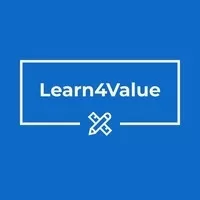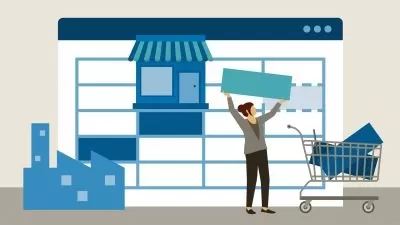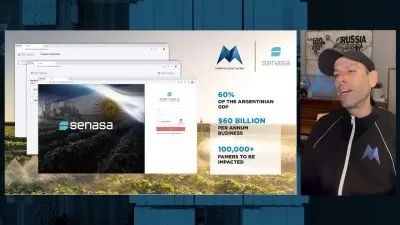Sustainable Supply Chains 1: Fundamentals and Reporting
Learn 4Value
1:34:02
Description
Learn about Sustainability, Carbon Footprint, Life Cycle Assessment, Reporting Frameworks, and Standards
What You'll Learn?
- Understand sustainability challenges facing businesses today through basic concepts and information: Climate Change, GHGs, GWP, Carbon Footprint
- Understand the different sustainability reporting frameworks and standards (IFRS, SASB, GRI, IR, CDSB, TCFD, TNFD, CDP)
- Learn how to use some of these standards (high level): GRI Environmental Standards, SASB Materiality Map, Greenhouse Gas Protocol Corporate Standard.
- Have the knowledge of the Life Cycle assessment (LCA) methodology and how it is used based on a real-life case study.
- Learn how to estimate Corporate Carbon Footprint through 5 steps and some recommendations for the calculations and interpretations of the results.
Who is this for?
What You Need to Know?
More details
DescriptionThis course is part of a course series on Sustainable Supply Chains: Fundamentals & Reporting, Operational Strategies, and Procurement Strategies. These courses will give you a complete and detailed view of sustainability and supply chains.
With this knowledge, you will be prepared to make a real difference in the world. Why is that? Because supply chains are central enablers for the sustainability goals and commitments of organizations.
We will go from the most basic knowledge to actionable strategies to have an impact and improve your business operations and sustainability goals, through better sustainable supply chain management.
This course is about basic concepts and fundamentals. In the first section, we walk about the importance and the evolution of Sustainable Supply Chains.
In the second section, we cover the concepts of Greenhouse gases, Global Warming Potential, and Water and Materials management.
In the third section, we present the most recognized Reporting Frameworks, like the Global Reporting Initiative, the Sustainability Accounting Standards Board, and the IFRS Foundation. Here, we have a complete chapter on the Greenhouse Gas Protocol and Carbon Footprint. We also show the methodology and an example of a Life Cycle Assessment (LCA).
And at the end, we develop a case study example of a hypothetical company interested in measuring its carbon footprint. Here, we define the boundaries, select the emission factors, do the calculations, and analyze the results.
This course is your starting point to learn about sustainable supply chains and how they are driving business transformation.
Who this course is for:
- Anyone wanting to learn about Sustainability.
- Anyone wanting to learn about Supply Chain.
- Anyone working in a company who wants to understand more about their sustainability performance.
This course is part of a course series on Sustainable Supply Chains: Fundamentals & Reporting, Operational Strategies, and Procurement Strategies. These courses will give you a complete and detailed view of sustainability and supply chains.
With this knowledge, you will be prepared to make a real difference in the world. Why is that? Because supply chains are central enablers for the sustainability goals and commitments of organizations.
We will go from the most basic knowledge to actionable strategies to have an impact and improve your business operations and sustainability goals, through better sustainable supply chain management.
This course is about basic concepts and fundamentals. In the first section, we walk about the importance and the evolution of Sustainable Supply Chains.
In the second section, we cover the concepts of Greenhouse gases, Global Warming Potential, and Water and Materials management.
In the third section, we present the most recognized Reporting Frameworks, like the Global Reporting Initiative, the Sustainability Accounting Standards Board, and the IFRS Foundation. Here, we have a complete chapter on the Greenhouse Gas Protocol and Carbon Footprint. We also show the methodology and an example of a Life Cycle Assessment (LCA).
And at the end, we develop a case study example of a hypothetical company interested in measuring its carbon footprint. Here, we define the boundaries, select the emission factors, do the calculations, and analyze the results.
This course is your starting point to learn about sustainable supply chains and how they are driving business transformation.
Who this course is for:
- Anyone wanting to learn about Sustainability.
- Anyone wanting to learn about Supply Chain.
- Anyone working in a company who wants to understand more about their sustainability performance.
User Reviews
Rating
Learn 4Value
Instructor's Courses
Udemy
View courses Udemy- language english
- Training sessions 26
- duration 1:34:02
- Release Date 2023/06/13










